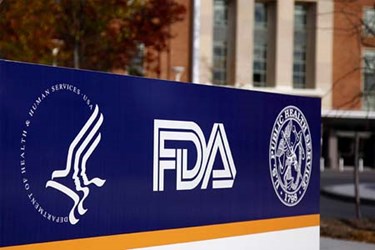FDA, Industry Spar Over Off-Label Medical Device Promotion

The FDA has opened discussions regarding the pharmaceutical and medical device industries’ argument for greater flexibility for the promotion of products for off-label indications. At the beginning of a two-day public hearing, FDA commissioner Robert Califf remarked that scientific information about non-approved uses for medical devices may be valuable, but expressed concerns that looser regulations could disincentivize clinical studies.
Industry advocates argue that healthcare providers already are using their products in ways that are not included on the labeling of medical products, and those providers are legally allowed to do so. A study published in the New England Journal of Medicine found that 21 percent of all pharmaceutical prescriptions were filled for off-label indications, frequently for children or people suffering from conditions that have no existing FDA-approved treatment.
Representatives from Pharmaceutical Research and Manufacturers of America (PhRMA), the Biotechnology Innovation Organization (BIO), and the Advanced Medical Technology Association (AdvaMed) met with the FDA to argue that the makers of pharmaceuticals and medical devices are “uniquely positioned” to disseminate this vital information to clinicians prescribing their products, reported Regulatory Affairs Professionals Society (RAPS).
Patient advocacy groups, doctors, and non-profit organizations all are legally allowed to speak with health care providers about off-label uses, but not to the makers of the products themselves, said industry reps, adding that the restriction is a violation of the industry’s First Amendment rights. According to CNN, Sandra Kalter, who testified on behalf of Medtronic, argued that restrictions on information “chilled innovation” and limited companies from reporting adverse events associated with off-label use.
Califf acknowledged the potential value in manufacturers’ information as long as it is “relevant, truthful and non-misleading,” but he reiterated the agency’s concern for patient well-being and noted that assertions without a strong scientific foundation could do more harm to patients than good, reported RAPS. Misleading information could “inappropriately influence prescribing or use decisions.”
Former public health analyst and FDA regulator Madris Tomes testified that there have been 23,800+ adverse events associated with the off-label use of medical devices in the past 20 years or so, and only 14 percent of these events are reported to the agency, reported CNN.
Califf also noted that looser restrictions on industry communications would make manufacturers less inclined to conduct scientifically-sound clinical trials and publish in peer-reviewed medical journals. For many narrowly defined populations—such as children, pregnant women, or patients with rare diseases—traditionally managed clinical studies can be too costly or time-consuming for industry to manage, but this does not diminish their value, according to Califf.
“If firms are able to promote products for new uses without generating the kinds of data that are needed to make a robust assessment of the benefits and risks of new uses and without applying for marketing authorization for new uses, the FDA premarket review system advances would be compromised and patients could be harmed,” said Califf, adding that information that is not peer-reviewed is not transparent.
Doyle Stulting, past president of the American Society of Cataract Surgery, argued that FDA restrictions interfere with communication between doctors and manufacturers, and that physicians are capable of evaluating the quality of information, regardless of its source, according to Medscape.
“This interference ultimately denies physicians access to vital, current, real-world experiences and adversely affects healthcare outcomes,” said Stulting.
